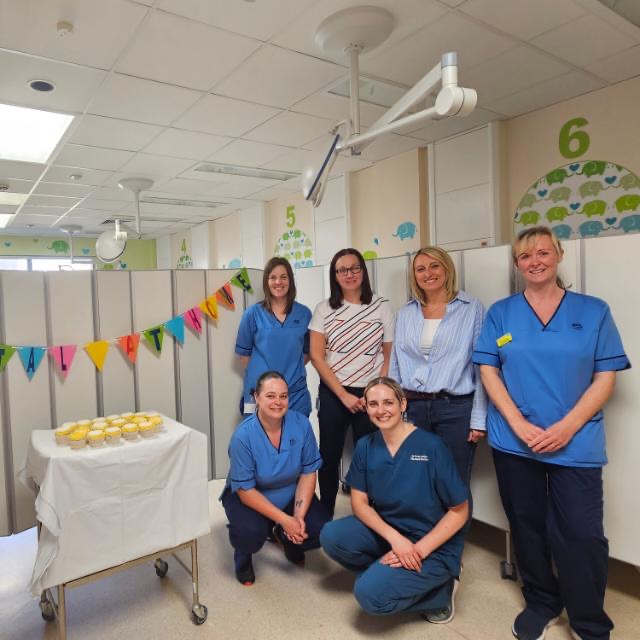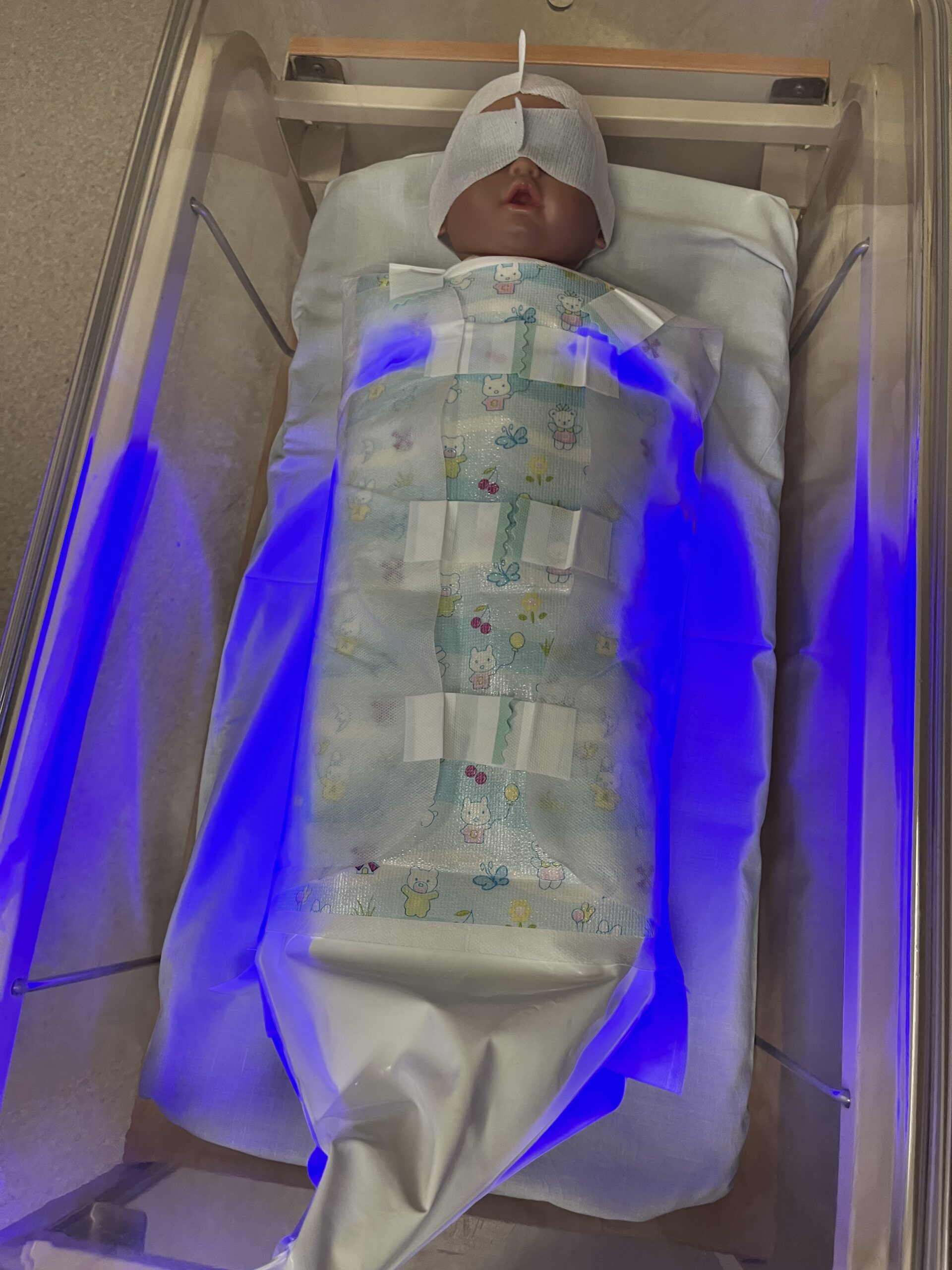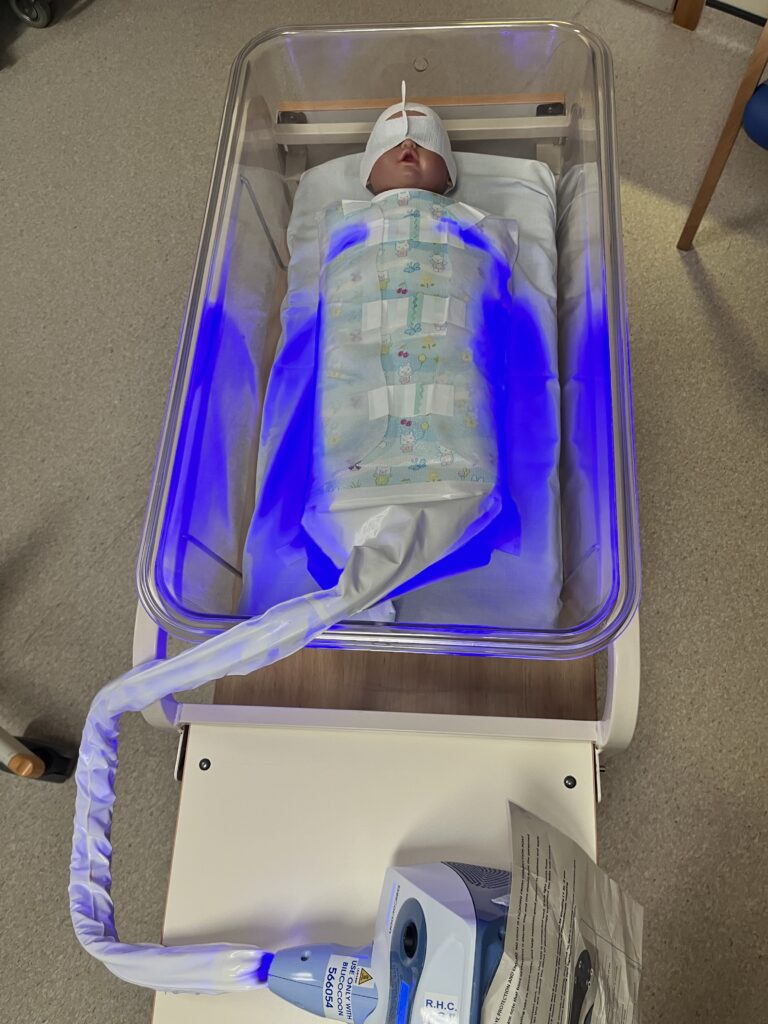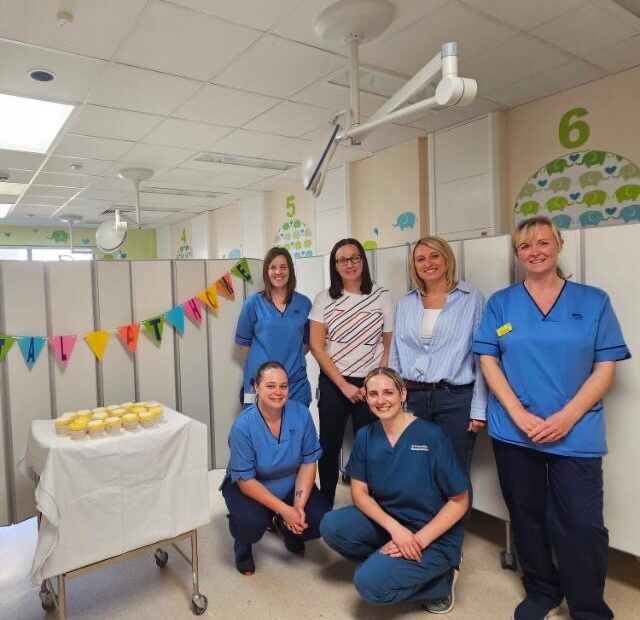
A team of neonatal nurses and medical staff at the Royal Hospital for Children, Glasgow (RHC) neonatal unit have launched a pilot service to treat newborn babies with jaundice in the comfort of their family home.
When at full capacity, the ‘at home’ service is estimated to free up at least 30 maternal bed days per month in the adjoining Queen Elizabeth University Hospital maternity unit, as these new mothers do not need to be in a hospital bed.
Neonatal jaundice is present in around six in 10 babies born and is caused by a build-up of bilirubin in the blood. It causes yellowing of the skin and the whites of the eyes. Currently, when a baby’s jaundice test shows high levels of bilirubin, they require a stay of up to five days in hospital with their mum to receive phototherapy treatment, a special type of light that shines on the skin.
This pilot from the RHC neonatal unit enables babies to go home as planned after birth and receive phototherapy while being with their mum in her usual comforts and surroundings.

The ‘at home’ treatment for neonatal jaundice is easy for parents to implement and minimises impact on day-to-day life with a newborn. Parents simply slip the baby into a small sleeping-bag-like garment which delivers the phototherapy. The babies can be breast fed while in this device.
A member of the neonatal nursing care at home team visits these families at home daily to monitor the baby’s progress.
NHS Greater Glasgow and Clyde Staff Nurse, Lynsey Hill is a member of the team who has worked to implement this treatment. She explained:
“Babies can develop jaundice symptoms 72 hours after birth. If we have already discharged a mum and her baby following labour, they would traditionally need to return for a hospital stay to receive phototherapy. This can be really upsetting for mums who have been settling into life with their baby at home,” she said.
NHS Greater Glasgow and Clyde community midwives monitor for jaundice as part of their routine home visits. Under the pilot, if the baby has jaundice requiring treatment with phototherapy after an assessment to ensure the baby is otherwise well and meets the criteria the family will be offered this care at home.
Lynsey added: “We are focused on delivering person-centred care and this is a pilot that we’ve been hoping to implement for a while. It is very satisfying to see it live, and to hear the positive feedback from parents. Our hope is for more women, who give birth at the Queen Elizabeth University Hospital, will be aware of the service and understand that their baby could be eligible.”

A family who has benefited from the pilot and Danielle and Scott Stevenson and their daughter, Ava. Scott explained:
“We were aware of Ava’s jaundice when she was in hospital, and she was receiving phototherapy there. Her bilirubin levels improved, and we were able to go home. The nurses advised that a midwife would visit the house, would check this again for us and that there was a chance we would need to return. When the midwife arrived at the house next day, the blood test showed that Ava needed phototherapy once again. The midwife then offered to bring the suit to us.
“I worried that it would be a lot of equipment at first, but it wasn’t, and it was so easy. It was great.
“We’re a 30-minute drive from the hospital, and we have our five-year-old son at home so it meant we could all stay together, and Danielle could be comfortable. Thank you to the hospital team for this service.”

